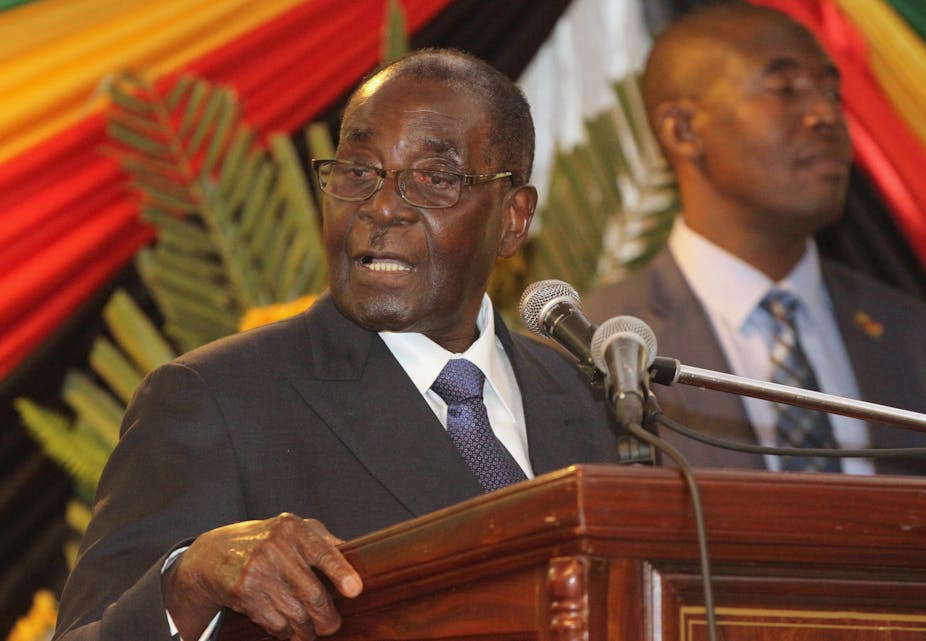Whose line is it anyway?
I remember coming back to South Africa from my first overseas trip to Europe in 1999. We were beginning our second semester of teaching in English Studies at the university at the time and I was scheduled to teach a few lectures on a Shakespearean play, King Lear.
Once I began my lecture I noticed that the class was unsettled, but I disciplined them sternly with an admonishment to be quiet and to take notes as we went along.
At the end of the series of lectures a student confided in me:
Sir, you have taught the wrong play. You already taught us this one last year!
Needless to say, I was acutely embarrassed.
Well, I am sure that this is not the first time that it has happened to academics at university. When one is on a public stage the eyes of critics are always looking for something interesting to pounce on.
Master of wrong speeches
Much like the incident involving Zimbabwean President Robert Mugabe who read the wrong speech at the opening of parliament. He spent almost half an hour delivering the same State of the Nation address he had read a month earlier.
Although he did correct the mistake a day later, he still had to endure a number of calls for his resignation as reported by the Daily Mirror. It appears that he had also made a sizeable blunder toward the end of last year when he shouted:
As most people know, this is the political party to which he belongs.
Mugabe is no novice when it comes to reading wrong speeches. A few years ago he began to read a speech but then realised it was not the version of the speech he had intended to read.
Mugabe reportedly stated in December last year that Morgan Tsvangirai, leader of the opposition, “had won the March 2008 elections by 73%”.
In good company
This situation reminds one of the incident in 2011 when the then-Indian foreign minister, SM Krishna, began to deliver a speech he had never seen before to a gathering of the UN Security Council.
He was, in fact, reading the speech of the Portuguese foreign minister, Luis Amado. Krishna carried on reading the speech for some three minutes before he was interrupted by an Indian official next to him who corrected the mistake.
In 2010 Krishna reportedly read out background material that had been prepared to assist him during a meeting in Islamabad. Similarly, at a meeting in Delhi, while addressing EU delegates, he read from instructions meant for him personally, and not the delegates.
In some memorable occasions, other politicians also got it wrong, notably Rick Santorum, a former Pennsylvania senator who denies the effects of global warming. In 2012 he was quoted as saying:
The dangers of carbon dioxide? Tell that to a plant, how dangerous carbon dioxide is.
Plants do need carbon dioxide to photosynthesise, but an overdose of carbon dioxide actually reduces their ability to do so.
Whose line is it anyway?
Be it as it may, in the end it is the journalists who are having a field day with “mix-ups” like these. It reminds me of one of the episodes from Whose Line Is It Anyway? where Kathryn Greenwood (clueless teenage girl on the phone to her friends), comments:
So like I got this job doing like the news or something, and like, what is that anyway? Like politics or wars or something? I just wanna chill, and y'know sometimes I just wish I was a goat y'know? How easy would life be then y'know, you wouldn’t even have to read things or understand things or … hey, why’s everybody staring at me?
Are you serious?
Well, as leaders, when we make mistakes we prove that we are human too, and not infallible. But when voters go to the voting stations to make their mark they do so with serious intent. They are serious about their future, and hope that this is reciprocated and that their political leaders will take their responsibilities seriously.
In addition, there could be millions, or billions, at stake. Leaders have the eyes of investors and markets on them, scrutinising their every statement and action with a view about what investments to make or not to make. Gaffes can prompt them to move their investments elsewhere.

